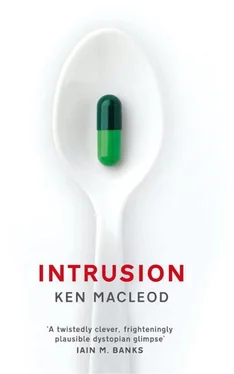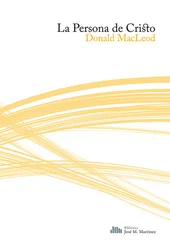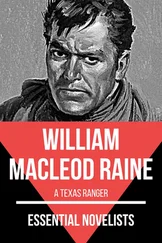‘So what happens to you?’ Geena asked, after Maya had shaken herself away and blown her nose and sat back down.
‘Oh, nothing,’ said Maya. She looked at the damp tissue clutched in her hand, threw it in a bin, rolled her wrist under her nose, and sniffed. ‘Of course the police don’t take all these accusations seriously. They aren’t even admissible as a basis for starting an investigation, unless something else corroborates them, let alone for pressing charges.’
‘So why…?’ Geena took a deep breath. ‘Forget that, I already know why they do it. They don’t care what you confess, they don’t care what you think, they want you to know they can make you confess. So… what happens when you put in complaints?’
Maya shrugged. ‘Most of my clients don’t want me to. Sad but true. And not much comes of it when they do. An apology and token compensation. Well, it’s token for the authorities; to some of these guys a few hundred quid can be life-changing, which is why I always urge them to do it. But most of them are too ashamed and too worried about making more trouble for themselves.’
‘But we shouldn’t be putting up with this!’ Geena said. ‘I mean, I had no idea. If it’s as common as all that, good God, it shouldn’t be just a matter of putting in complaints. There should be some kind of political campaign against it.’
‘There is,’ Maya pointed out. ‘Several, in fact. Amnesty, Liberty, there’s even groups inside both parties against torture. Nobody cares. It’s like the war. It’s one of those things everyone understands you can do nothing about. Come to think of it, it’s part of the war. Security. Like computer security, you know? It just runs in the background.’
Geena laughed at the analogy, then frowned.
‘I’m not so sure security’s part of the war,’ she said. ‘I’m beginning to suspect the war is part of it . That’s how my supervisor sees it, anyway.’
‘Oh, yeah, Dr Estraguel. Heard him going on about it in lectures at Brunel. Imperialism and reaction and all that. Bloody Marxist rubbish.’
Geena hesitated. ‘It’s a bit more complicated than that,’ she said at last. ‘Uh, actually it’s got me thinking about how we can help Hope Morrison.’
‘We?’ Maya teased. ‘Well I’m not sure I have helped her much, but I’m glad you think there’s something we can—’
She was interrupted by a hesitant knock on the door.
‘Five minutes!’ she yelled. She turned back to Geena. ‘Well, better make it quick.’
‘I got the idea that there might be something in their genes that the fix would change but might actually be, you know, quite good to have. I mean, I know most mutations are deleterious, but there’s always a chance, and I’ve found one that looks sort of interesting and I was wondering if that might be a good reason she could give not to have the fix. Is there something like that in the law?’
Maya sucked in her lower lip and slowly rolled it out again. ‘Hmm,’ she said. ‘Very naughty of you. But very interesting. I hadn’t thought of that. Because in the original legislation, it wasn’t supposed to be compulsory, so it wouldn’t be framed as an exemption, any more than all the conscience-clause stuff was. All of that was ostensibly put in as cover for doctors, so they couldn’t get sued later if the parent had refused the fix for such-and-such a reason. It would be put in as a good medical reason not to prescribe.’ She reached behind her and retrieved her glasses from the desk. ‘Let me just check.’
She waved her arms as if pulling down a rope.
‘Ah!’ she said, after a few minutes. ‘I think I’ve found just the thing.’
The sky was brightening in the east as Geena set off from Uxbridge, leaving Liam for once to sleep later than her, and the sun was well up over the factories and office towers of the blocky Hayes horizon and melting the overnight frost when she arrived at SynBioTech just before six. No one was about. Her glasses – on for the code, off for the retinal scan – got her into the building, the lift and the lab. Joe arrived just as she had the coffee going.
‘Good morning, Geena.’ He looked around, grinning. ‘It feels funny having the place to ourselves, eh?’
‘Yes,’ she said. ‘Coffee?’
‘Oh, very welcome indeed,’ said Joe. He took his mug to the central table. ‘Now, what was it you wanted to check?’
Geena put on her glasses and sat down beside him.
‘A mutation in RHO. Undocumented, but no apparent deleterious effects in, uh, the phenotypes.’
He shot her a look under his black brows.
‘I won’t ask how you know about the phenotypes.’
‘Wise move,’ said Geena. ‘Better you don’t know.’
Joe laughed. ‘We both know that doesn’t matter… Very well, patch it across.’
Geena waved hands and waggled fingers and blinked. The seaweed tangle of the virtual gene popped into existence above the table. Joe reached forward and rolled it around, this way and that.
‘OK,’ he said. ‘That’s the mutation locus. Now let’s see what protein it codes for.’
Molecules of RNA did their thing, and the cascade began. Geena had seen this many times, but she was still struck by how mechanical it all was, at least in this representation, a matter of this fitting into that and bumping off the other. The protein formed.
‘Now the predictive sim,’ said Joe.
The scale changed, from molecular to structural. A sheet of crystalline opsin rippled into view, snapped into stability. Virtual wave-packets flashed down to it like sprites. Electrons – not to scale – spun off and squirmed through the molecules. A number array, incomprehensible to Geena, built up like a spreadsheet.
Joe leaned back and looked at it for a long time.
‘What?’ said Geena.
‘Interesting,’ said Joe. ‘It’s responsive to wavelengths outside the visible spectrum. It’s like… No!’ He laughed to himself. ‘It’s too silly.’
‘What?’ Geena said again.
‘Last year we worked on UV sensors. Built them up from insect visual-pigment analogues.’ He turned to her, with an upraised finger and intent frown. ‘Did you know, Geena, that there are species of insect whose eyes are most responsive to wavelengths that are not present in the spectrum of the Sun? It’s like they are adapted to life under another star.’
Two weeks into May, three months into her pregnancy, Hope had her second pre-natal check-up. The appointment was at 10.30. She worked the hour after dropping Nick off – still without problems at the gate – and left the flat at ten. Though still chilly, the weather had improved since the beginning of May. No more flurries of snow. A bit of sun. She walked briskly up Stroud Green Road. The clinic was a two-storey redbrick building in a side street off Crouch Hill, overlooking the railway line. Hope went through the biometric scan at the door and into a reception area with the obligatory decor of plastic stackable chairs, beige walls tacked with children’s drawings and plaintive advice posters designed to look like children’s drawings, and a faint pine-and-lemon smell of disinfectant. She checked in at the desk and sat down by a table stacked with tattered glossy hard copy, which she turned over and flipped through one by one. She’d read more recent issues of all the magazines that interested her on her glasses, but it appeared to be the expected thing to do, and doing the expected thing seemed important in her situation. She wondered how many of the six other women waiting were doing it for the same reason. A big poster on the wall forbade, for privacy reasons, the use of glasses or hand-helds in the waiting room.
Читать дальше











